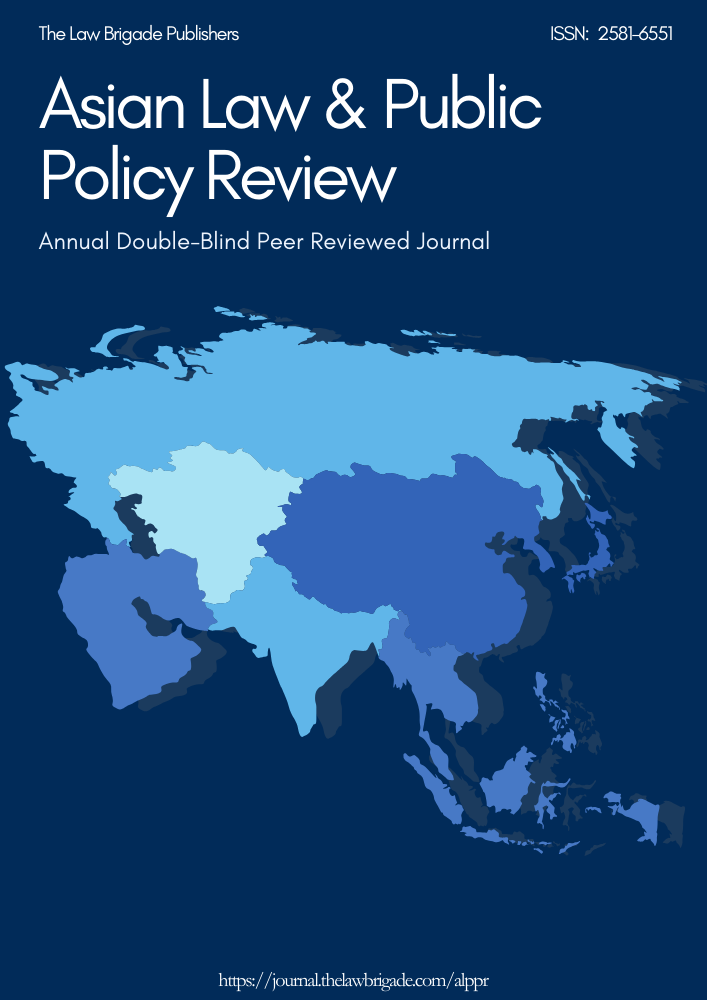From Tragedy to Transformation: The Role of CSR and the Rana Plaza Collapse in Rebuilding Bangladesh’s Garment Industry
Keywords:
Globalization, Corporate Social Responsibility, Garment Industry, BangladeshAbstract
Globalisation and its tropes, privatization, deregulation, and liberalisation have led to the proliferation of transnational corporations. Further, as one of the main drivers of the globalisation, the corporate activities of Trans- National Corporations (TNC’s) have relevance economically, socially, and environmentally. It is pertinent to consider that many TNC’s operations take place in the least developed countries of the Global South, and it is here where the notorious human rights abuse often occurs and are harder to regulate.
The Rana Plaza Collapse was one of the most devastating incidents in Bangladesh that claimed the lives of more than 1,100 people and injured thousands. The incident exposed the harsh reality of the working conditions in the garment industry in Bangladesh and brought international attention to the issue of corporate social responsibility (CSR) in the country. In the aftermath of the disaster, CSR has become more important than ever before in Bangladesh. This research paper explores the continuing importance of CSR in Bangladesh following the Rana Plaza Collapse and examines the ways in which companies can implement effective CSR strategies to improve working conditions and promote sustainable development in the country.
Downloads
References
1. "Corporate Social Responsibility in Bangladesh: A Study of the Ready-Made Garment
Industry" (Ahmed, N., & Chowdhury, T. A.)
2. "The Rana Plaza Collapse and the Bangladeshi Garment Industry: A Challenge to CSR"
(Rahman, M. A., & Islam, M. A.)
3. "The Bangladesh Accord on Fire and Building Safety: A Case Study in Global
Regulation and Corporate Social Responsibility" (Gereffi, G., & Lee, J.)
4. "International Organizations and Corporate Social Responsibility in Developing
Countries: The Case of Bangladesh's Garment Industry" (Jamali, D., & Sidani, Y.)
5. "The Role of Corporate Social Responsibility in the Bangladesh Garment Industry"
(Zaman, M. A.)
6. International Labour Organization. (n.d.). Building safety in Bangladesh.
https://www.ilo.org/dhaka/areasofwork/building-safety/lang--en/index.htm
7. International Labour Organization. (n.d.). Promoting decent work in the ready-made
garment sector in Bangladesh. https://www.ilo.org/dhaka/areasofwork/ready-madegarments/lang--en/index.htm
8. International Labour Organization. (2015). Improving working conditions in the readymade garment sector in Bangladesh. https://www.ilo.org/wcmsp5/groups/public/---
asia/---ro-bangkok/documents/publication/wcms_407833.pdf
9. PWC. (2014). The Bangladesh Accord on Fire and Building Safety: A year of progress.
10. Transparency International Bangladesh. (2014). The Rana Plaza tragedy: one year on.
http://www.tibangladesh.org/beta3/images/press_releases/2014/2014_04_22_Rana_Plaza_One_Ye
ar_On.pdf
11. United Nations Development Programme. (2016). Corporate social responsibility in
Bangladesh: current status and future directions.
12. United Nations Development Programme. (2018). Business and human rights in
Bangladesh.
13. World Bank. (2016). Bangladesh - Improving worker safety in the ready-made garment
industry: progress and the way forward.
https://openknowledge.worldbank.org/handle/10986/24969
14. International Labour Organization. (n.d.). Building safety in Bangladesh. Retrieved
from https://www.ilo.org/dhaka/areasofwork/building-safety/lang--en/index.htm
15. International Labour Organization. (n.d.). Promoting decent work in the ready-made
garment sector in Bangladesh. Retrieved from
https://www.ilo.org/dhaka/areasofwork/ready-made-garments/lang--en/index.htm
16. International Labour Organization. (2015). Improving working conditions in the readymade garment sector in Bangladesh. Retrieved from
https://www.ilo.org/wcmsp5/groups/public/---asia/---robangkok/documents/publication/wcms_407833.pdf
17. PWC. (2014). The Bangladesh Accord on Fire and Building Safety: A year of progress.
Retrieved from https://www.pwc.com/gx/en/sustainability/publications/bangladeshaccord-on-fire-and-building-safety.html
18. Transparency International Bangladesh. (2014). The Rana Plaza tragedy: one year on.
Retrieved from http://www.tibangladesh.org/beta3/images/press_releases/2014/2014_04_22_Rana_Plaza_One_Ye
ar_On.pdf
19. United Nations Development Programme. (2016). Corporate social responsibility in
Bangladesh: current status and future directions. Retrieved from
20. United Nations Development Programme. (2018). Business and human rights in
Bangladesh. Retrieved from
21. World Bank. (2016). Bangladesh - Improving worker safety in the ready-made garment
industry: progress and the way forward. Retrieved from
Downloads
Published
Issue
Section
License

This work is licensed under a Creative Commons Attribution-NonCommercial-ShareAlike 4.0 International License.
License Terms
Ownership and Licensing:
Authors of research papers submitted to any journal published by The Law Brigade Publishers retain the copyright of their work while granting the journal specific rights. Authors maintain ownership of the copyright and grant the journal the right of first publication. Simultaneously, authors agree to license their research papers under the Creative Commons Attribution-ShareAlike 4.0 International (CC BY-SA 4.0) License.
License Permissions:
Under the CC BY-SA 4.0 License, others are permitted to share and adapt the work, even for commercial purposes, provided that appropriate attribution is given to the authors, and acknowledgment is made of the initial publication by The Law Brigade Publishers. This license encourages the broad dissemination and reuse of research papers while ensuring that the original work is properly credited.
Additional Distribution Arrangements:
Authors are free to enter into separate, non-exclusive contractual arrangements for distributing the published version of the work (e.g., posting it to institutional repositories or publishing it in books), provided that the original publication by The Law Brigade Publishers is acknowledged.
Online Posting:
Authors are encouraged to share their work online (e.g., in institutional repositories or on personal websites) both prior to submission and after publication. This practice can facilitate productive exchanges and increase the visibility and citation of the work.
Responsibility and Liability:
Authors are responsible for ensuring that their submitted research papers do not infringe on the copyright, privacy, or other rights of third parties. The Law Brigade Publishers disclaims any liability for any copyright infringement or violation of third-party rights within the submitted research papers.


